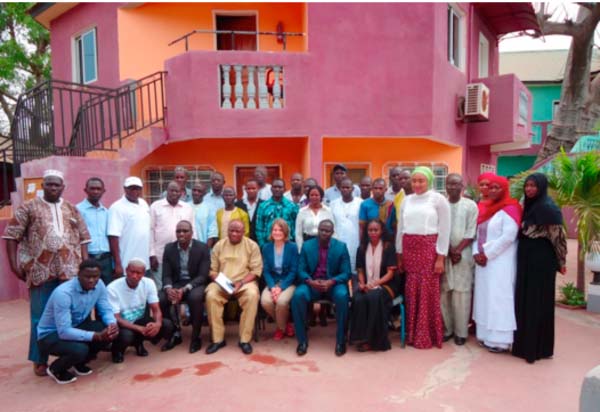
The five-day forum was hosted by the Planning Service Unit (PSU) of the Department of Agriculture under the Ministry of Agriculture and funded by CILSS/ECOWAS.
In his welcoming remarks, Bakary K.S. Sanyang, officer-in -charge of OIC and head of PSU, department of Agriculture, said the upsurge of food and nutrition crises remains a concern for the Sahelian and West African countries.
This was due to the demographic growth, poverty, anomalies on markets, nutrition issues, climate change and variability leading to food and nutrition insecurity situation, he added.
“This situation became more serious in West African countries with agricultural policies that do not really consider the environmental aspect,” he added.
Mr. Sanyang thanked the participants for honouring the invitation as well as urged them to participate fully in the forum as every participant’s contribution or input is important.
Also speaking at the seminar, Nora Lecumberri of Food Economy Group Consulting and Kane Yousouf of Regional Center AGRHYMET/CILSS, both stressed the importance attached to the meeting, geared towards building capacity.
They also reiterated the importance of the exercise as “The Gambia is yet to have livelihood zone” and has got an opportunity to develop that through participatory forum.
In his official opening statement, the deputy permanent secretary, CONACILSS at the Ministry of Agriculture, Assan Jallow, said the issue of food and nutrition security was registered in the development priorities of the country and the other countries in the Sahel.
“Therefore, any initiative to make this happen would require mobilisation of actors at both national and regional levels,” he said, adding that the global objective of the RFSR is to contribute to addressing efficiency and strengthening household resilience.
He said the overall objective of ECOAGRIS as a component of the RFSR is to strengthen information systems at different local, national and regional levels to meet information requirement for monitoring food and nutrition situation, analyses of vulnerability for decision making support in order to anticipate food crises and better target the intervention areas.
In addition to the aforesaid, he outlined, the project had two specific objectives: strengthening national and regional information system on food and nutrition security, and improving the quality of decision making support to better address food and nutrition crises in CILSS and ECOWAS member countries.
The workshop was held to strengthen the information system on food nutrition and household vulnerability at national and regional levels.
Thus, this led to the need to contact studies on the description of the livelihood zones and identification of zones at risk of food and nutrition insecurity in The Gambia, he added.
He urged the participants to be actively involved in the workshop which would allow them to lay the foundation for definitive treatment of concerns related to description of zones and livelihood profile through the implementation of tools suitable for the purpose.
He assured that the Government of The Gambia had strongly supported the existence of this tool.




